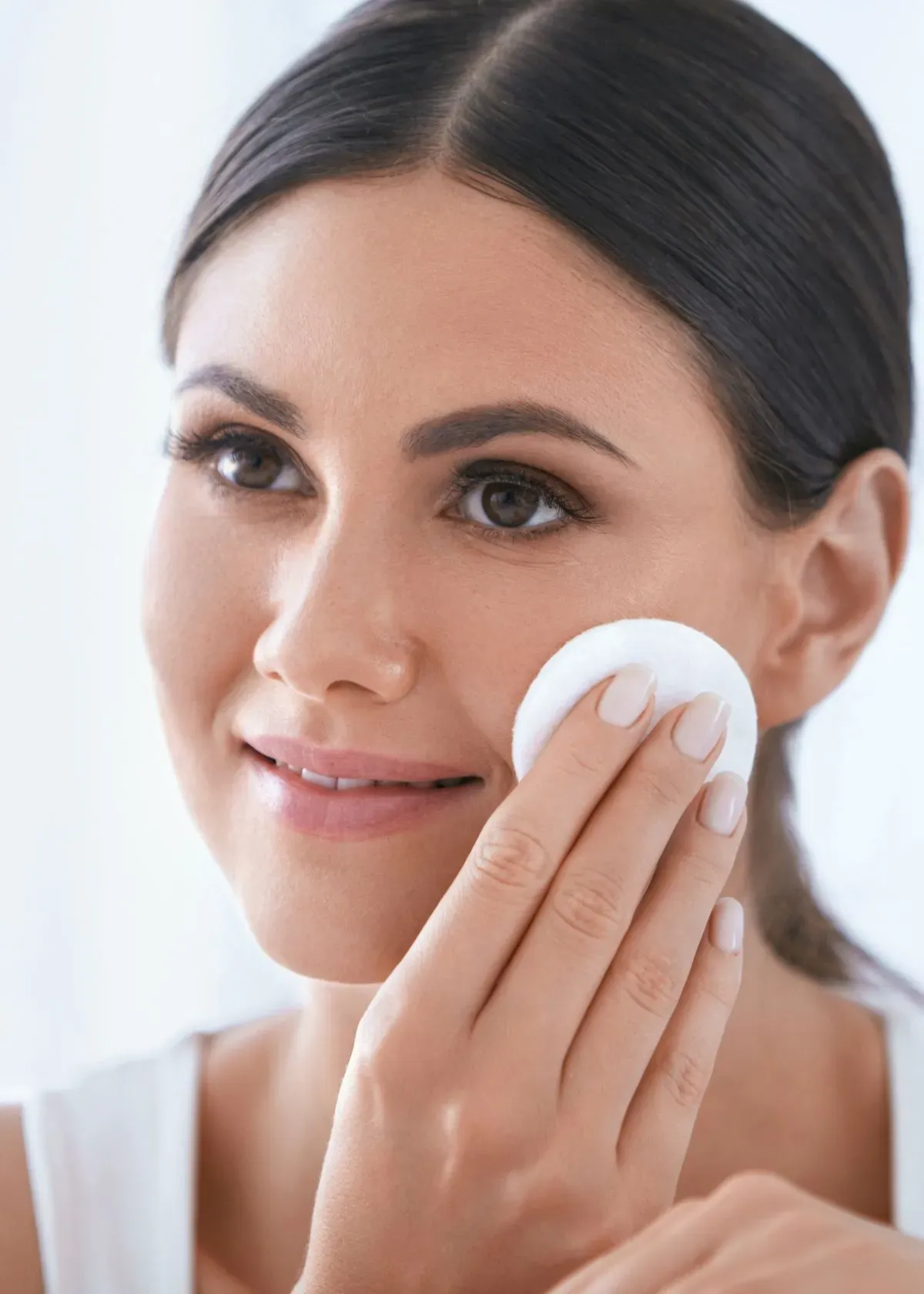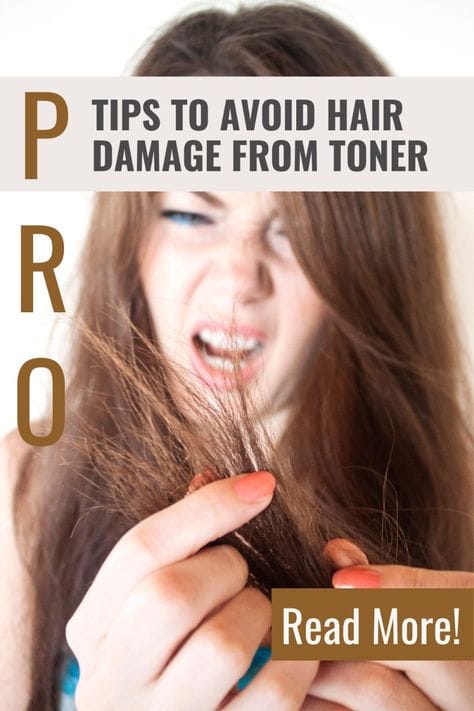Hair toner, often considered a gentler option than permanent dye, works by correcting natural hair color and eliminating unwanted undertones in your hair. While it's safer since it doesn't change the hair structure like some dyes can, using toner isn't without risks.
It's particularly important to be careful if your strands are already stressed from other treatments or you're aiming for a big color shift. Toners are acid-based products that come into play after bleaching or coloring; however, they can lead to issues such as dryness and damage if used on weakened hair.
Also worth noting is that choosing the right type of toner and following thorough post-toning care routines plays a massive role in safeguarding your locks.
Many people don’t realize how critical it is to match the condition of their colored hair with an appropriate product choice and application process. Beyond just picking up any bottle labeled 'toner,' seeking advice from professional hairstylists might save your mane from needless harm.
So let’s dive deeper into this topic – healthier-looking hair could depend on these next insights! Keep reading for more expert tips and tricks on using toners safely.
- Hair toner can damage your hair if overused or not applied correctly, leading to dryness, brittleness, and uneven color.
- Quality toners that match your hair's needs and correct application are essential for minimizing potential harm to your locks.
- To keep hair healthy after using toner, limit the frequency of use, follow instructions carefully, and moisturize and condition your hair regularly.
What is a Hair Toner, and How Does it Work?

Hair toner is a product that hair care professionals use to refine the color of your hair. It comes into play after bleaching or lightening, effectively removing unwanted tones like yellow or orange tones and enhancing the true shade of dyed hair.
Toners work by depositing color onto your hair cuticles without lifting their natural pigment, making them different from permanent dyes, which penetrate the hair shaft. Think of it as a top coat for your nails; just as that adds shine and seals in color, toner works to smooth over the color you've added to your locks and gives everything a more polished look.
The magic behind toner lies in its acid-based nature, which neutralizes brassy undertones and helps lock in your desired hue while adding a lustrous sheen. This is crucial because even though bleach can open up the cuticle to strip away permanent hair color, it often leaves behind harsh tones—toners counteract these effects without further altering the structure of each strand.
Appropriate application means applying toner evenly across strands and allowing it to process for just long enough to achieve an even tone throughout but not so long that it overstays its welcome, causing unnecessary stress on sensitized tresses.
The Potential Damage of Toner on Hair
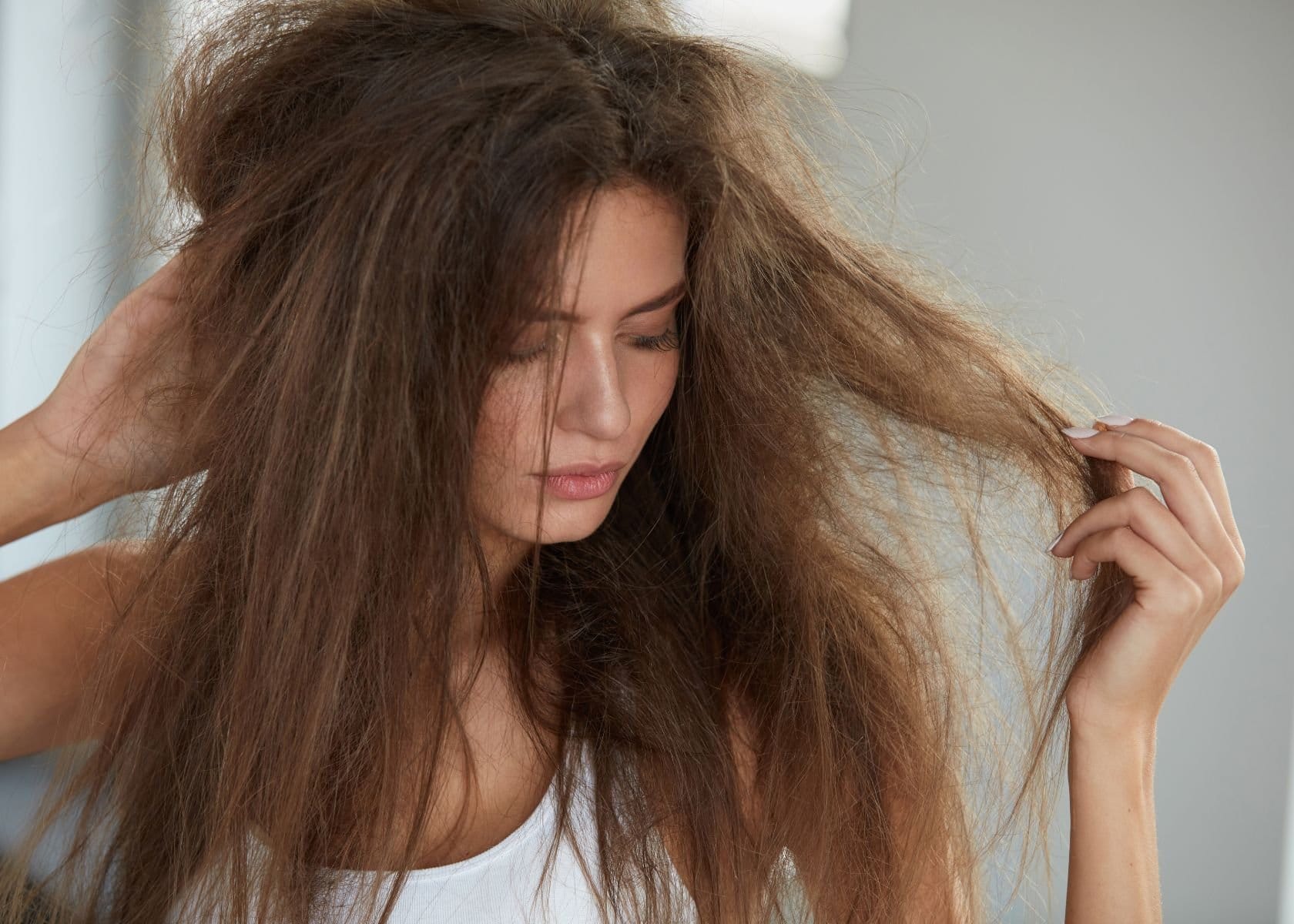
Over-processing, improperly formulated toners, and incorrect application can lead to potential damage to hair when using toner. It's important to be aware of these factors in order to prevent any negative effects on the hair.
Over-Processing
Over-processing hair with toner can lead to significant damage, as the repeated application of chemicals can weaken the hair structure. This can result in dryness, brittleness, and breakage. Do not tone your hair too much.
Over-processed hair may also become more porous and prone to tangling and frizz due to the loss of natural oils and proteins.
Excessive use of toner can cause the hair cuticle to lift excessively, leading to a rough texture and lackluster appearance. Additionally, over-processing may strip the hair of its natural moisture, leaving it vulnerable to environmental factors and further damage.
Improperly Formulated Toners
Some improperly formulated toners contain harsh chemicals that can cause damage to the hair. High levels of ammonia or peroxide in toners may lead to over-processing, resulting in dryness, breakage, and brittleness of the hair strands.
If the toner is too strong or not properly balanced, it can also strip the hair's natural moisture and oils, further contributing to damage.
Improperly formulated toners may also result in uneven color distribution and a lack of vibrancy. This can lead to dissatisfaction with the overall look and feel of the hair after toning.
Incorrect Application
Incorrect application of hair toner can result in damage to your hair. Using toner on already damaged or sensitized hair can exacerbate the problem, leading to further dryness, brittleness, and potential breakage.
Improperly applying toner, such as leaving it on for too long or using too high a concentration, may cause scalp irritation and contribute to the weakening of the hair fibers. It's essential to carefully follow the instructions provided with the toner and seek professional advice if you're unsure about how to apply it properly.
Additionally, choosing a high-quality toner that is formulated for your specific hair type and color needs can help minimize potential damage from incorrect application.
Signs of Hair Damage from Toner
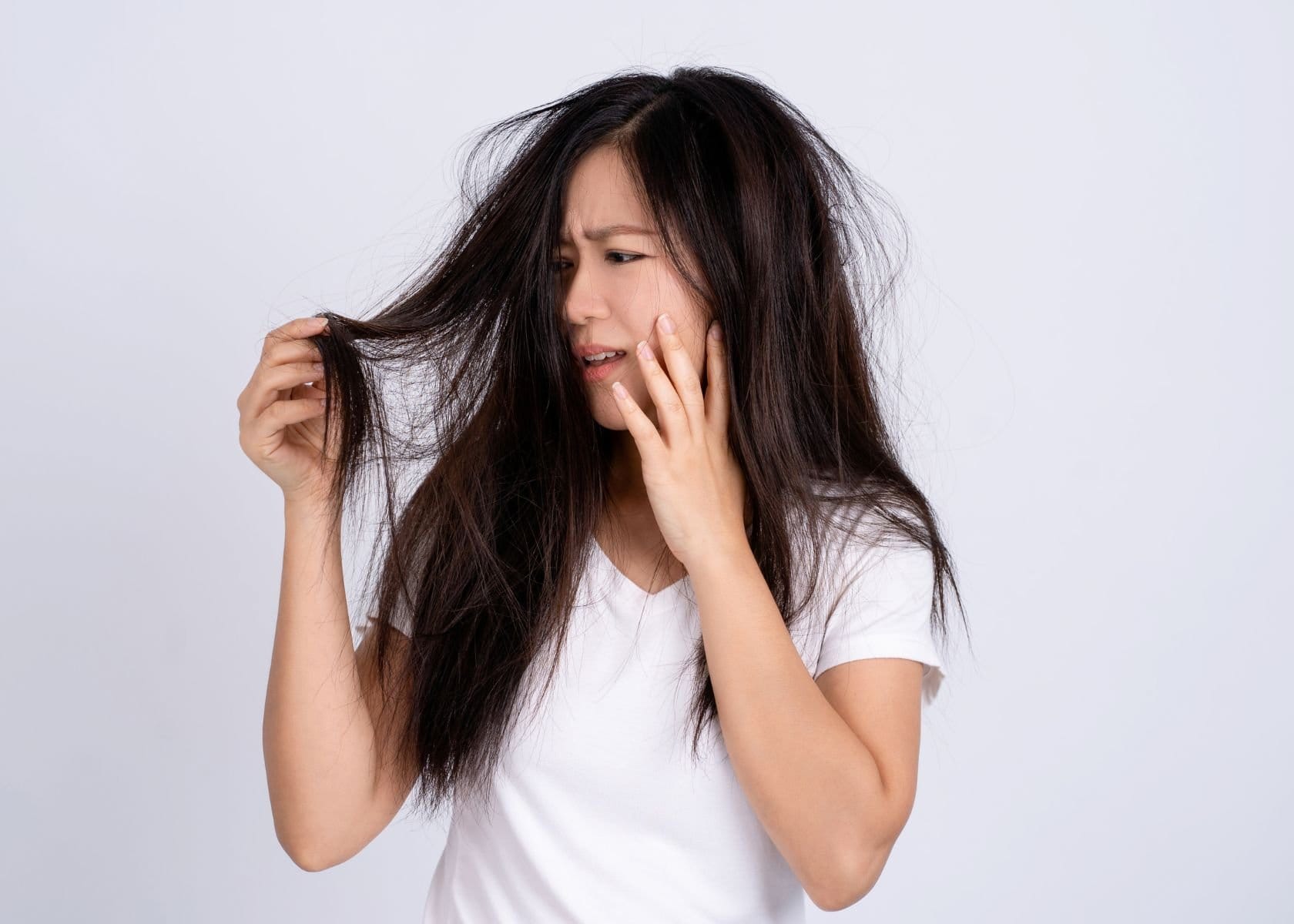
Dryness and brittleness, uneven color or fading, and scalp irritation are all potential signs of damage from using toner on your hair. Want to know more about how toner can affect your hair health? Keep reading.
Dryness and Brittleness
Toner may lead to hair dryness and brittleness if overused or left on for too long, especially when the hair is already damaged. The chemical reactions from toner application can strip the hair of its natural oils, leaving it parched and fragile. It is an obvious sign of hair toner damage.
Additionally, incorrectly formulated toners may impact the hair's moisture balance, resulting in a brittle texture that is prone to breakage. It's essential to choose high-quality toners carefully formulated to maintain hair health while achieving the desired color effect.
Hair damage from toner can manifest as dryness and brittleness due to the alkalizing agents present in most toners. These agents can disrupt the natural pH balance of the scalp and hair, leading to dehydration and weakening of the hair strands.
To minimize these effects, it's crucial to select a toner suitable for your specific needs and ensure proper application techniques are followed diligently.
Uneven Color or Fading
When hair toner causes uneven color or fading, it may indicate potential damage to the hair strands. Overexposure to toner, especially when the hair is already sensitized, can lead to discoloration and uneven results.
In some cases, improperly formulated toners or incorrect application techniques can contribute to fading or patchy coloring, highlighting the need for careful consideration of both the condition of the hair and the specific toner used in order to minimize potential damage and achieve consistent results.
Scalp Irritation
Using toner on the hair can sometimes lead to scalp irritation, especially if the toner contains strong chemicals that may cause sensitivity or allergic reactions. It's essential to pay attention to any signs of discomfort, such as redness, itching, or a burning sensation on the scalp, and discontinue use if these symptoms occur.
Ensuring proper application techniques and choosing high-quality toners with less harsh ingredients can help minimize the risk of scalp irritation from using toner.
When it comes to maintaining healthy blonde hair and achieving desirable results with toner, addressing potential scalp irritation is crucial for overall hair health.
How Often Can You Use Toner on Your Hair?
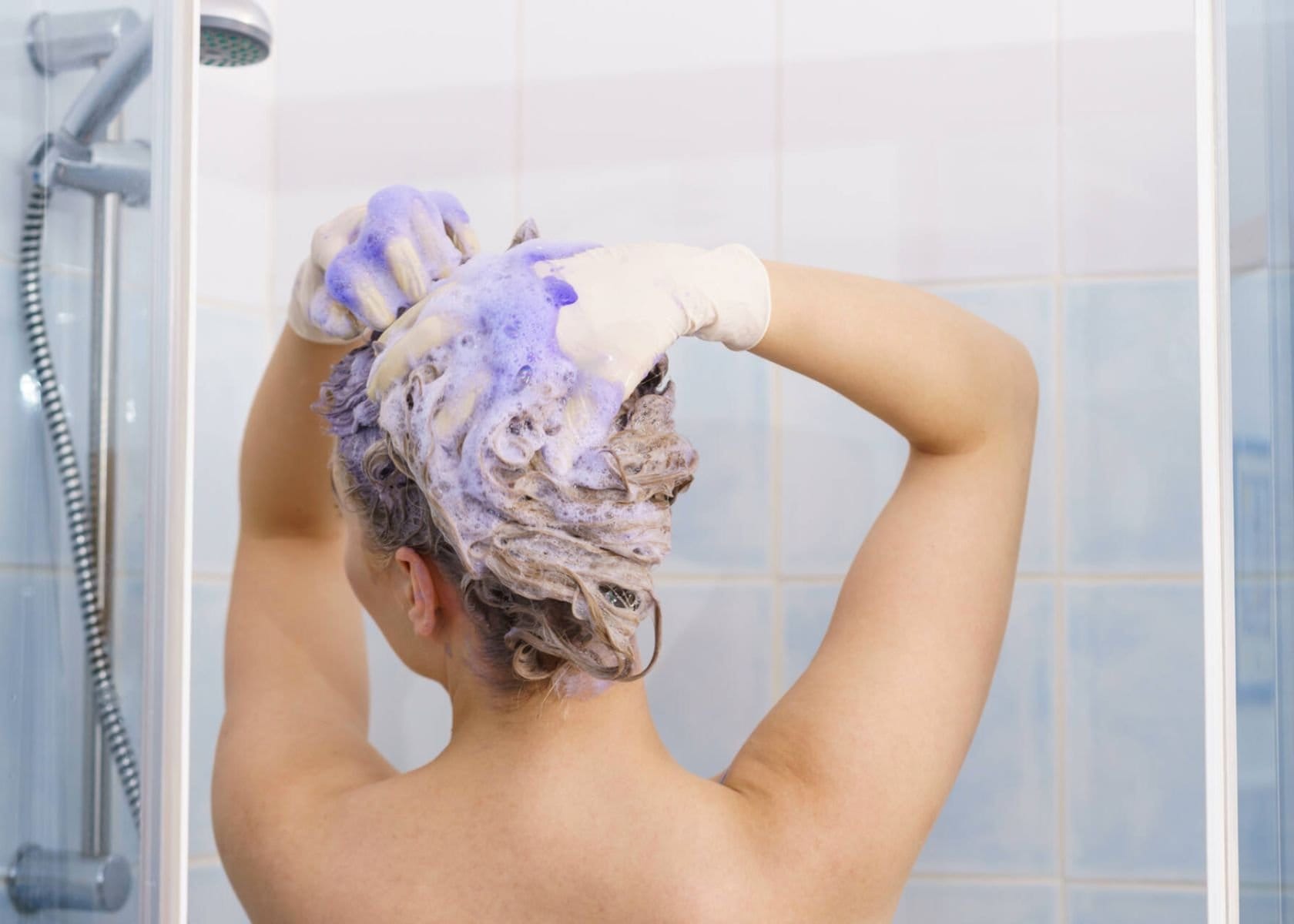
Hair toner can be used on your hair every 4-6 weeks to maintain the desired color and neutralize any unwanted undertones. It's essential to consider the condition of your hair and the specific type of toner being used before deciding how often to apply it.
Overusing toner can lead to dryness, brittleness, or even damage, especially if your hair is already sensitized or damaged from previous treatments. Consulting with a professional hairstylist or colorist will allow for personalized advice on the frequency of using toner and its potential impact on your hair health.
Using quality toners in the appropriate strength, following instructions carefully, and limiting the frequency of use are crucial steps to minimize potential damage when using toner.
It's important to moisturize and condition your hair regularly between applications to help maintain its health and vitality. You can also use a purple shampoo for your yellow and orange tones so that your hair's natural shine doesn't fade easily.
Tips to Avoid Hair Damage from Toner

Choose high-quality toners and follow the instructions carefully to prevent potential damage. Use the right strength for your hair, limit the frequency of use, and moisturize and condition regularly to keep your hair healthy.
Choose High-Quality Toners
Selecting high-quality toners is crucial for minimizing the potential damage to your hair. Look for toners that contain nourishing ingredients such as keratin, amino acids, and natural oils to help maintain the health of your hair while achieving the desired color.
Opt for toners from reputable brands that prioritize hair safety and quality, and consider seeking professional advice to ensure you select a toner suited to your specific hair type and needs.
When considering high-quality toners, it's important to factor in the pH level of the product as well. A balanced pH can prevent unnecessary damage to your hair while helping the toner effectively neutralize any unwanted undertones.
Follow Instructions Carefully
To minimize the potential damage of toner on your hair, it is crucial to follow the instructions provided by the manufacturer. Pay attention to the recommended application time and process, as well as any specific requirements for rinsing or aftercare.
Using toner according to the guidelines can help achieve the desired results without compromising the health of your hair. Additionally, consulting with a professional colorist or hairstylist can provide personalized advice on choosing and using toner products effectively.
When using toner on your hair, ensure you are following all instructions meticulously to maintain healthy and vibrant hair. It's also important to understand how often you should use toner in order to avoid potential damage while achieving optimal results.
Use the Right Strength
To minimize the risk of hair damage from toner, it is crucial to use the right strength for your hair type and condition. Choosing a toner that matches your desired outcome while being gentle on your hair is essential.
This helps avoid over-processing or causing unnecessary stress to your hair strands, especially if they are already sensitized. When selecting a toner, consider factors such as the current color of your hair, its porosity, and any previous chemical treatments it may have undergone.
By taking these into account, you can ensure that the toner's strength aligns with what your hair needs to achieve the desired results without compromising its health.
Selecting a toner with an optimal strength for your specific needs also contributes to maintaining healthy and vibrant-looking hair. By avoiding unnecessarily strong formulas or those containing harsh chemicals, you reduce the risk of potential damage.
Limit Frequency of Use
To minimize potential damage to your hair from toner, it is crucial to limit the frequency of use. Overusing toner can lead to over-processing and dryness, especially if your hair is already sensitized.
By allowing enough time between toning sessions, you can give your hair a chance to recover and maintain its natural moisture balance. This can help prevent brittleness and uneven color that may result from frequent toner application.
Additionally, spacing out the use of toner allows for better observation of the effects on your hair, giving you the opportunity to adjust or change products if necessary.
Carefully managing how often you apply toner to your hair will contribute to maintaining its health and minimizing any potential damage caused by chemical treatments. It's essential to strike a balance between achieving your desired color results and preserving the overall condition of your hair.
Moisturize and Condition Regularly
To maintain healthy and vibrant hair after using toner, it is crucial to moisturize and condition regularly. Applying a high-quality conditioner helps replenish moisture lost during the toning process, preventing dryness and brittleness.
Additionally, frequent use of a nourishing hair mask can improve the overall condition of the hair, combating potential damage caused by toner. Ensuring that your hair receives proper hydration and conditioning will contribute to restoring its natural shine and softness, promoting optimal hair health.
Regularly using an effective moisturizer for your scalp helps alleviate any irritation or dryness resulting from toner application. This ensures that both your scalp and strands remain in excellent condition despite undergoing a hair toning treatment.
Does Toner Damage Hair - FAQs
Toner is often touted as a gentler alternative to bleach when it comes to lightening or coloring hair. But there are still some concerns about potential damage from toner.
Below are answers to some frequently asked questions about how toner works, whether it can damage toned hair, and tips for using it safely. Read on to learn more about minimizing risks and getting great results when using toner on your locks.
Can using toner on my hair be damaging?
Yes, if not used correctly, toner can lead to dry and brittle damaged hair. It's important to follow instructions carefully and consider your hair's health before applying.
What are the risks of using toner on bleached hair?
Using toner on bleached or color-treated hair has risks such as increased sensitivity, potential harm from overprocessing, and the possibility of causing damage to your hair strands.
Will a hair color treatment with toner impact my hair health?
Hair color treatments that include toners can have an impact on your hair's health by potentially leading to dryness or brittleness if not properly conditioned and maintained.
Are there negative effects of using too much toner on my hair?
Yes, overusing toner or incorrect application may cause negative effects, including making the dark brown hair more prone to damage and weakening its natural structure.
Should I condition my hair after applying a toner?
Conditioning after applying a toner is highly recommended as it helps maintain moisture balance and supports healthier-looking dyed or treated locks.
Conclusion
Understanding the potential damage of toner on hair is crucial for maintaining healthy and vibrant hair. Implementing the tips provided can significantly reduce the risk of damage and keep your hair looking its best.
Taking proper care when using toner can lead to improved results and healthier hair in the long run. Explore professional advice or resources to further enhance your knowledge about this topic.
Embrace these strategies and empower yourself to prevent damaging hair from toner. If you are using a toner for your hair, share your experience with all of us in the comments below.
